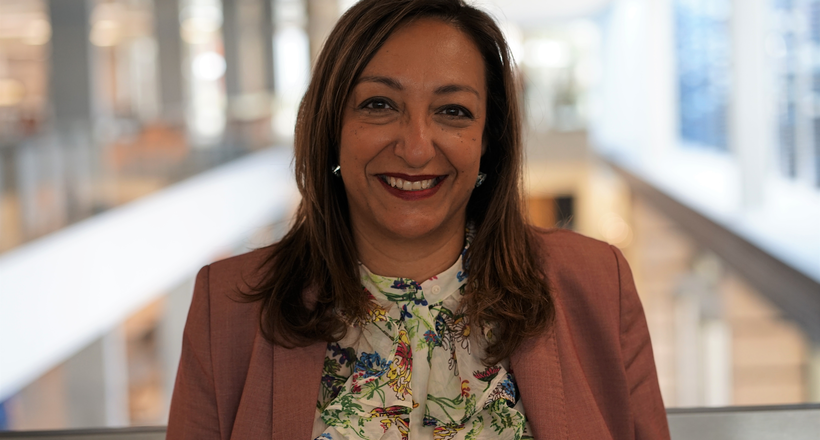What Estonia's commitment to English means for school leavers
Here, Dr Hanan Khalifa, Cambridge's Director of Education Transformation and Impact, explains how a project to offer the Ministry of Education in Estonia an English-language qualification for high-achieving students came about, and why it has been so successful.

Five years ago, the Ministry of Education in Estonia was looking for a qualification for high-achieving students that would be more challenging than the national foreign language exam. This sparked a successful four-year collaboration with Cambridge which has seen more than 15,000 school leavers successfully take our high-level English qualification. We've just signed a contract to deliver even more exams over the next four and a half years.
How did the project come about?
For many years, Estonian students have achieved high levels of English and an increasing number of them did not find the national English-language exams were sufficiently challenging. You could say that this is a nice problem to have!
As part of Estonia's robust education system, they have three national exams - one of which is a foreign language exam, and this is often delivered as an English exam. However, the Ministry found that their national exam, which was graded at B2 level of the Common European Framework of Reference, was not helping to differentiate their most advanced students. They wanted a higher-level exam that would give school leavers the English language skills boost they needed to go into higher education and the workplace.
This is where Cambridge came in. We were delighted to help to support a ground-breaking English language programme in schools across Estonia.
What has been achieved to date?
Over the last four years, more than 15,000 school leavers have successfully taken our C1 Advanced exam and the results have been nothing short of inspiring. Estonian students have consistently achieved incredibly high levels of English language ability. The exams are successfully delivered by Harno, the Education and Youth board, with very high levels of professionalism and enthusiasm, which has been instrumental in helping the project go from strength to strength. At the end of November last year, the latest group of 2080 students successfully took the Cambridge English C1 Advanced exam, bringing the total for 2022 to over 5,000.
What is the impact of programmes like this?
At Cambridge, measuring the impact of programmes like this is something we take very seriously. The kind of questions we like to ask are: How well do students perform? How did they find the test? What does this mean for their personal development? What does it mean for schools and more widely for society?
Looking at the results of the Estonian English programme, one thing that made me consistently proud is how well students perform. In fact, Estonian students have consistently achieved results which are significantly above the global average for this high-level English exam. This is a fantastic achievement when you consider how in-depth the exam is and the skills it covers.
I was also particularly interested to find out that Estonian students perform best on the speaking and listening parts of the exam, which are integral parts of real-life communication. It is these real-life communication skills that will have a huge impact on boosting the students' next leg of their journey.
Why was it successful?
One of the key factors to the success of the project is the fact that it is not a one size fits all approach. For example, the CI Advanced exam was part of wider package from Cambridge, tailored specifically for Estonian schools. This includes offering our placement test that is taken by thousands of students before the exam session, which helps teachers decide who is ready to go forward for a C1 Advanced exam.
The results give a snapshot and then a teacher recommends who needs more support and who is ready for a C1 Advanced. This is a really important factor as it helps to ensure not too much pressure is put on the students. It's also important to acknowledge and praise the motivation and commitment of the students, teachers, and everyone behind the scenes.

In December 2022, I visited Tallinn for an event to celebrate the success of the project and to discuss the next phase ahead. It was very clear that the Ministry of Education, Harno and everyone else involved in the project are as enthusiastic as the students and teachers.
Year-on-year growth
The last four years of the project has seen more and more students being put forward for the Cambridge English exam. This year-on-year growth is significant because it shows the confidence that the Ministry of Education has in their students' abilities.
We have also just signed a new agreement to deliver even more tests with a target of 18,500 students in the next four and a half years.
And that's something I'm very proud of because with this Ministry level of support for an education programme of this scale, the next chapter in Estonia's education story is going to be a positive one.

